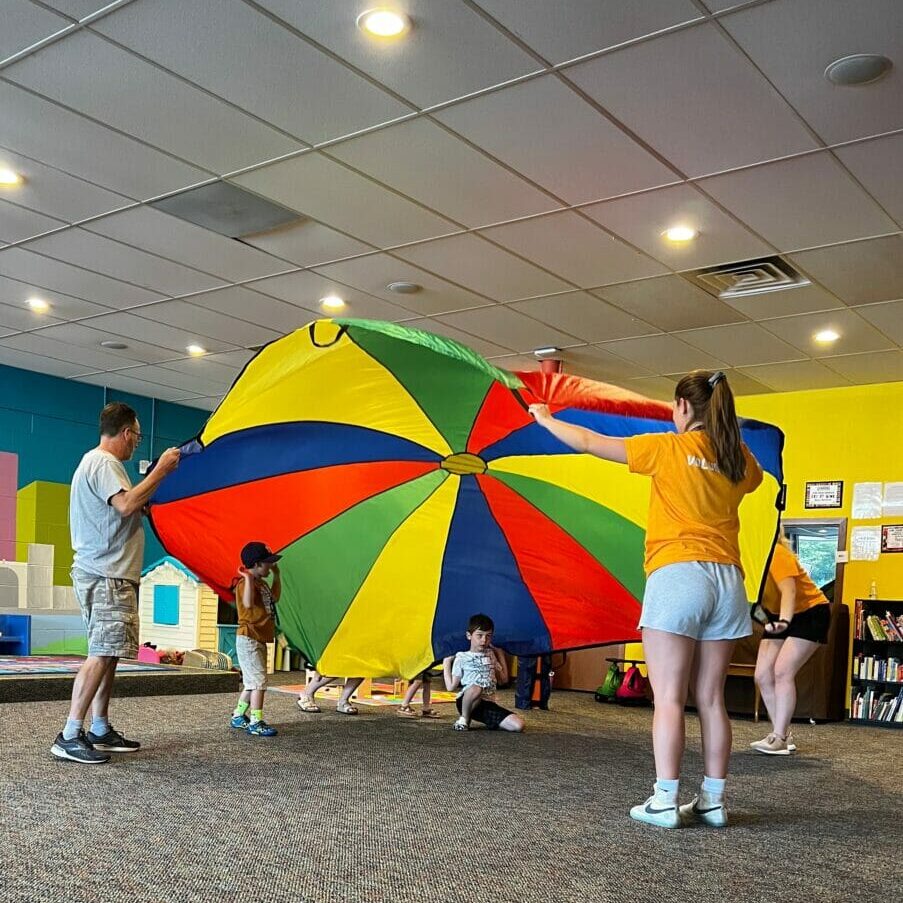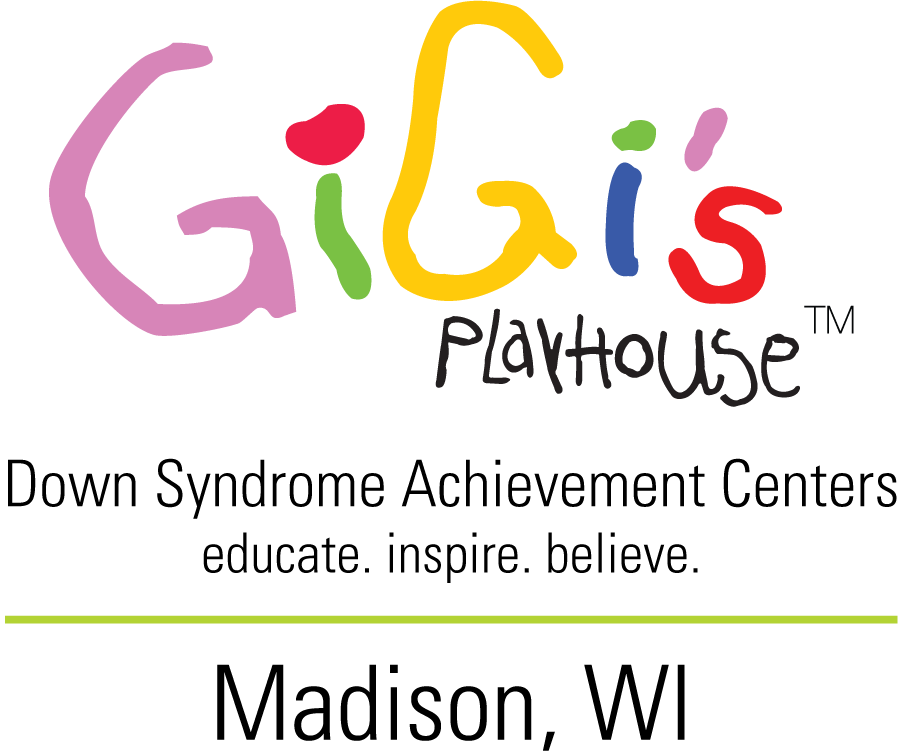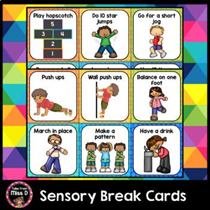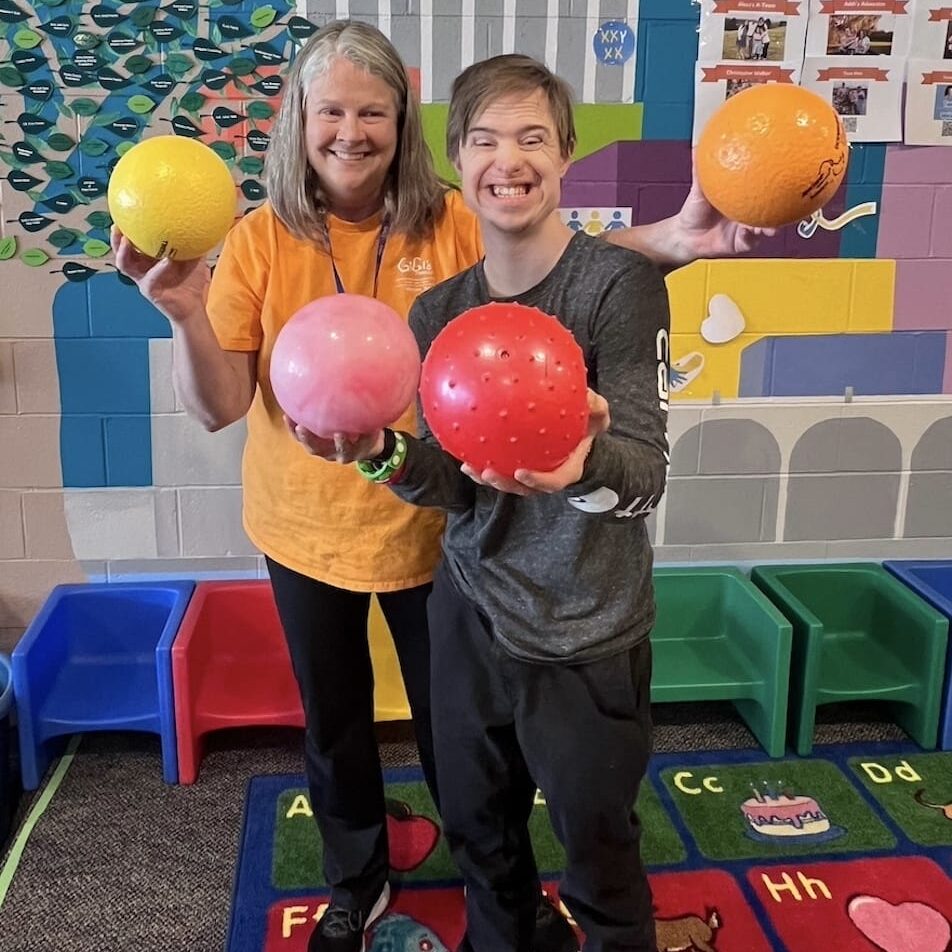Sensory Discussion- Importance of Routines- Part 2
Are Routines Important?
Second part in the routine series written by guest bloggers Carla Lackey OTAS and Jill Rahn OTAS from Madison College
While routines are helpful for anyone, we would like to acknowledge the unique challenges of parents, especially in the cases of dual diagnoses of Ds and Autism. With these challenges, there is an even more pronounced need for families to find ways to address their children’s sensory concerns. In addition, setting up and keeping routines can be difficult depending on individual family situations; e.g., single parent homes, or homes where there is minimal support available from one of the two parents. It takes creativity, stamina, and perseverance, yet families have demonstrated their resourcefulness time and again.
Routine Benefits:
- Lower stress levels lead to improved mental health, more time to relax and less anxiety. Having no routine creates the constant worry of “when and how will I get this done?”
- Better sleep will leave you refreshed and able to accomplish your to-do list for the day.
- Better overall health is a result of just a little extra planning. Scheduled times for cooking, grocery shopping and exercising leads to a healthier lifestyle.
- Good example setting will encourage others to try a routine as well. You demonstrate its importance and the positive effect it has on health, motivation and self-esteem.
- Better Use of Time during the day reduces time spent wondering what to do now and what still needs to be done.
- Virtual schooling and traditional schooling routines can decrease stress. Routines should be visual, clear, and broken into small easily accomplishable steps. These steps give the student a clear plan of the school day. If possible, work on the most difficult material early in the day.
- Evidence suggests that the visual schedule works well for children who have difficulty with memory and organization.
Three Types of Routines
- Daily Routines- Daily Routines may include simply the order of your daily tasks or, to add more complexity, how you’re going to accomplish the daily tasks/activities. Daily routines include any consistency you can put in your child’s day, so they know what to expect as the day progresses. These can be as specific or general as needed, based on the age of your child and their needs.
- Transition Routines– Transitions between various activities can be difficult, particularly when transitioning from a more preferred activity to a less preferred activity. Implement a key phrase/ verbal reminder, visual or auditory timer, or even play music to cue your child that a transition is coming. These cues will make the transition less of a challenge.
- Social Routines –Social routines might include role playing how to engage in conversations with adults and friends, as well as setting up routine playdates with other children. Practicing social routines with your child helps them feel more comfortable and natural in social settings.
Visual Schedules
- Visual schedules should be arranged from a top-to-bottom and left-to-right format including a way for the child to indicate that an activity is finished or “all done!”
- Visual schedules will tell a child what activities will occur and in what sequence. For example, a way to break this down is to create “first-then” schedules.
Sensory Breaks
- Adding sensory breaks into your routines and schedules can create a sensory diet for your child.
- A sensory diet can help your child fulfill their sensory needs, increasing focus in school and other activities.
- A sensory diet is regular engagement in activities that provide sensory experience the individual can crave.
- What these activities are will depend on the needs of the child.
- Some examples are jogging in place, crab crawl, bear walking, puddle jumping, rolling down a hill, swinging, taking the dog for a walk, and so many more.
- Have some fun with it!
Making Felt schedule example: Felt Schedule
References
20overall%20health. https://specialedresource.com/3-critical-types-of-routines-for-children
Solomon, J., & O’Brien, J. (2016). Pediatric Skills for Occupational Therapy Assistants (4thth ed., pp. 498-506). St. Louis, IL: Elsevier.
Recent Posts








